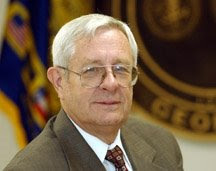Parks connect a community from where it has come from to where it is going. Parks may be defined by green spaces, or they may not even be carefully delineated. Parks may be more of an idea than a place. As such, do downtown parks have value for community?
A traditional view of parks may be related to recreational programs such as baseball, cheerleading, basketball, soccer, or football. Spaces (parks) for such programs are usually embraced by the public (even members of the public who do not use these spaces personally) because there is an obvious value in opportunities for the community’s children. Additionally, studies all across the United States tie higher property values to properties near traditional park space. A Boulder, Colorado study indicated that residential property values decreased by over $4 for every foot farther away from an urban green space.
The importance of meeting places helping define a community was aptly indicated in a letter to the editor of the News Herald in 1907 by Mr. W. O. Smith. “If you could, Mr. Editor, be out on the streets on days that it is too wet to work and on Saturdays and see the many people go in and out doing a great deal of trading and you would say that Dacula is a busy little place.”
In 1907, the urban park for Dacula was downtown Dacula and particularly that portion near the train depot. Unfortunately, the depot no longer exists and small-scale farming is only remembered, but Historic Downtown Dacula remains much the same.
As we jump forward over a century, life in Dacula is certainly different. The desires and needs of our residents remain. We want the best we can provide for our children. We want to have a good job, have a safe place to live, work, and play. Traditional parks help in those areas, but a newer view of urban parks points to the broader contributions they can make to the vitality of communities and their residents. For example, not everyone wants to participate in a sports program at a park. Those individuals might desire a less crowded and quieter environment.
In providing less conventional urban park space, a city broadens opportunities for residents including those which might connect current residents to those who labored for the same values and ideas in years past. Other meeting places from past years included area churches and the Dacula School.
Did you realize that there once was the Dacula Coronet Band made up entirely of eligible young Dacula gentlemen? I suspect that any performance of the Coronet Band was well attended by young Dacula ladies and by members of the public as well, and the concert was in essence an unconventional urban meeting place—a park.
How about a Suffragette Convention and a play, Laugh and the World Laughs With You, Weep and You Weep Alone? The right of women to vote was granted by the 19th Amendment to the U. S. Constitution in 1920. The Convention and play were held in Dacula in 1915 at the Dacula School Auditorium. The cast of the play was made up of the Grande dames of the city and the young ladies. Community meetings and community activism occurred all across the U. S. and right here in Dacula—sometimes in unconventional meeting spaces—urban parks.
Let’s not leave out the men of the community. How about a 3-day Horse Swapper’s Convention? We had one back in 1918. Where this Horse Convention was held is lost in the mysteries of time, but you can bet it drew a crowd—an unconventional park setting.
Our new downtown urban park connects us to the past. It helps recall those public areas that were used in the past and are now gone and brings to the future opportunities to mingle, meet, greet, argue, engage in world-changing activities, and, sometimes, to just get away from the work-a-day world. The yet-to-be-named park reminds us of our past and the folks who went about their daily lives and helped make the Dacula of the past into the Dacula which will be our future.
Dacula in 2012 is not that little place that W. O. Smith wrote about, but we strive to keep that feel. The music that the Coronet Band played might not be a modern sound, but I bet the tunes would still inspire. A play by the women folk about getting the right-to-vote might seem quaint, but activities held here helped change American society into what it is today.
That is the major value of our new urban park. It will help us understand where we came from and points us on our way to the future.
The to-be-named park helps us respect Dacula’s past and look forward to Dacula’s future.
To make a suggestion about an appropriate name for the park in Historic Downtown Dacula, please send me suggestions at mayordacula@att.net.
Monday, April 9, 2012
Subscribe to:
Post Comments (Atom)



No comments:
Post a Comment